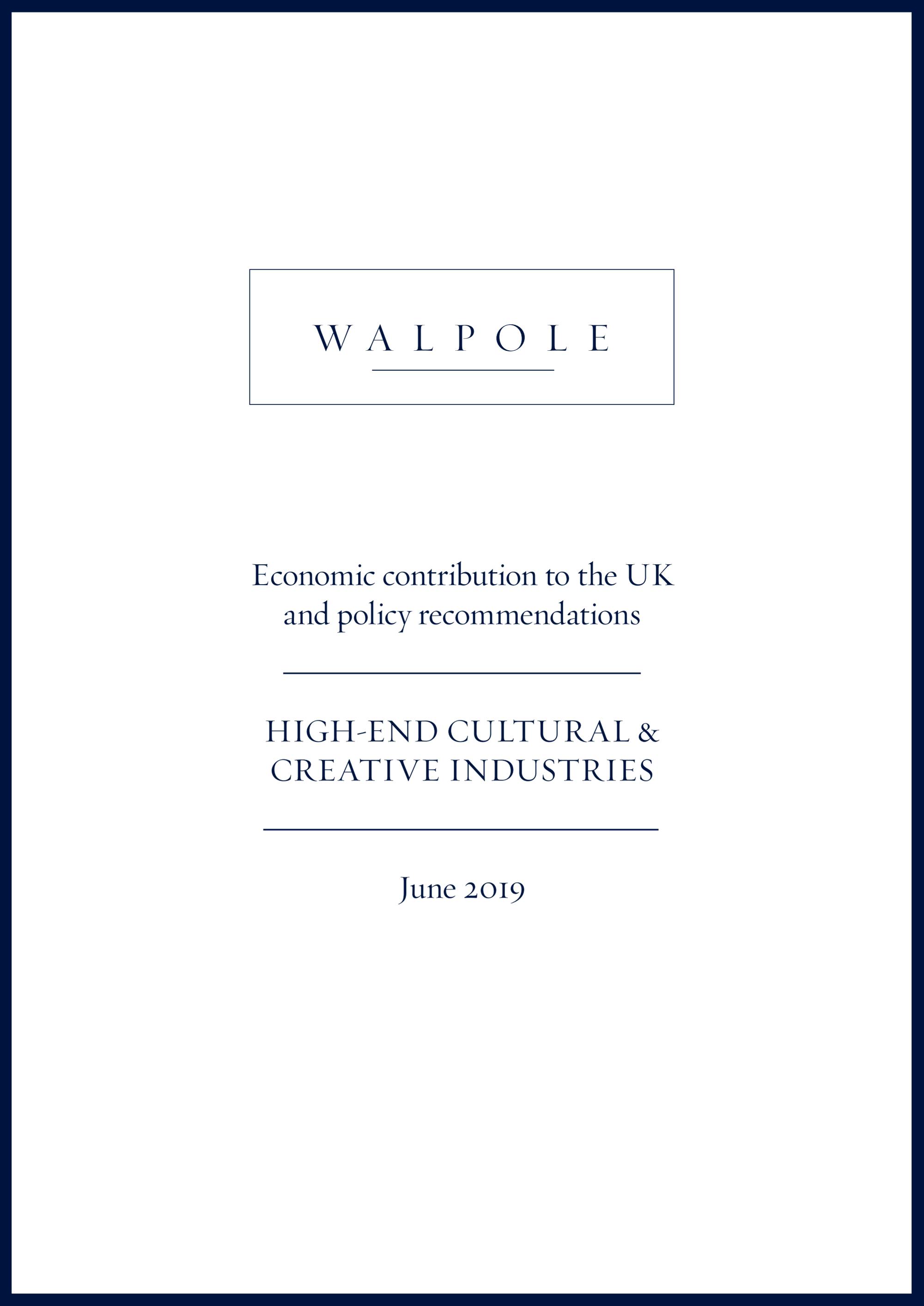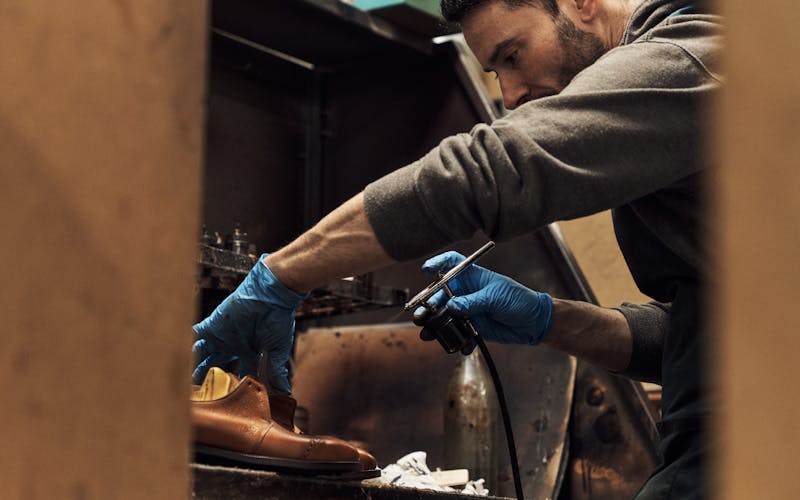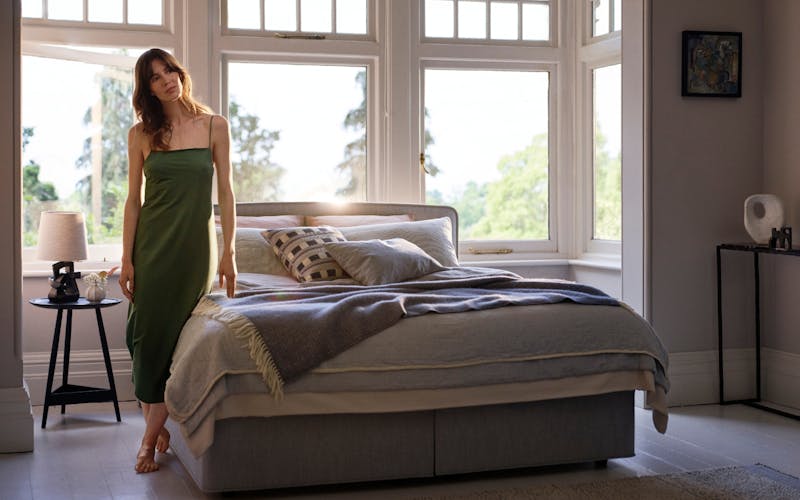

for Walpole members and
non-members available now
at The Londoner



The figures were announced at a presentation and panel discussion at Simpson's in the Strand this morning. Walpole's CEO Helen Brocklebank gave a presentation highlighting the key figures in the report; and was followed by Charlotte Keesing, Walpole's Director of Public Affairs & International, moderating a panel representing some of the UK’s most famous brands and young entrepreneurial businesses. Panellists included: Philip Barnes, MD, The Savoy; Whitney Bromberg-Hawkins, Founder & CEO, FLOWERBX; Richard Carter, Group Communications Director, Rolls-Royce Motor Cars; Frieda Gormley, Co-Founder, House of Hackney; and Michael Ward, Chairman of Walpole & MD of Harrods.
The full report can be read here: Economic Impact Study report
The report’s key information can be viewed here: Economic Impact Study infographic
The report, which was commissioned by Walpole and analysed by international consultancy firm, Frontier Economics, updates metrics last published in 2015 and creates a new benchmark for the sector. The report defines British luxury according to 11 classifications that captures the range of activities across the sector. They include: designer apparel and footwear, fine wines and spirits, luxury accessories, luxury jewellery and timepieces, high-end beauty and personal care and high-end car manufacturing.
The new benchmark points to a sector that is heavily export-orientated with 80% of production, or £38.5 billion in value terms, destined for overseas markets; up 54% since 2013. The top export markets for British luxury goods are the EU, North America and China.
Direct and indirect employment in the British luxury sector grew 38% to 156,000 from 113,000 and accounts for nearly 6% of all jobs created in the UK during 2013-2017. The sector creates long-term, sustainable employment, centred around regional manufacturing hubs, and has a strong focus on training and apprenticeships to fulfil the highly skilled roles required to manufacture products in the UK. Overall, the British luxury sector is growing 9.6% per year on average, attributable mainly to a strong performance in the luxury car sector, outpacing UK average annual economic growth of 4%.
Beyond the immediate economic contribution of the UK’s luxury businesses, revenues generated indirectly highlight the importance and scale of these industries. The main example is in tourism, reflecting the ever-increasing trend of shopping tourism and the consumption of high-end products whilst travelling. In 2017 the value of sales of high-end goods to non-UK resident customers was £4.5 billion with China, GCC and USA are the top three purchasing nations.
The report identifies distinctive business principles underpinning industries in UK luxury: the allure, or aura, of the brand, reflecting the cultural heritage on which British luxury draws; the rich tradition of skilled craftsmanship; the importance of long-term sustainable relationships with a tight network of suppliers; an emphasis on exceptional product quality, and the role of intellectual property and selective distribution in securing the value-add of the final product.
Helen Brocklebank, CEO Walpole commented: “These figures demonstrate the exceptional contribution British luxury makes to the UK economy and to the reputation of Brand Britain worldwide. Few other business sectors can demonstrate growth of nearly 50% in just four years and, against a challenging political backdrop, this is a sector that continues to demonstrate a commitment to investing in UK manufacturing and creating sustainable employment across the country. We look forward to continuing this kind of robust growth, not least in exports, but the threat of exiting the EU without a deal remains and would cost British luxury businesses £6.8 billion in lost export revenues. Now is the time for policy makers to provide distinct sector recognition and to guarantee a suitable framework to protect the growth of the UK’s high-end creative and cultural industries.”
Henrietta Jowitt, Deputy Director General CBI said: “It’s clear that for all the current political uncertainty, the strength of the British brand is as strong as ever and demand for our products is soaring. Businesses across the UK continue to live up to a reputation for producing goods of the highest quality. Exports are the lifeblood of any economy and the contribution of the luxury brands sector in that regard is significant.”
Michael Ward, Chairman, Walpole and Managing Director of Harrods added: “Britain’s luxury brands are our calling card to the world. We should be enormously proud of these businesses: their heritage, creativity, craftsmanship, quality, innovation - and the contribution they make economically, culturally and to soft power diplomacy. It is critically important that this thriving sector is promoted and protected to ensure its long-term growth.”
If you would like any further information about the report or have a media enquiry, please contact Carly von Speyr





